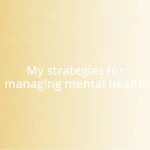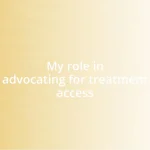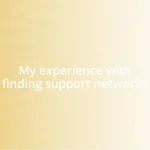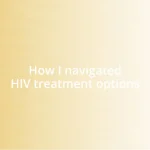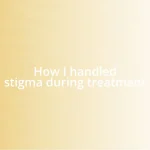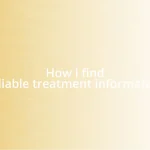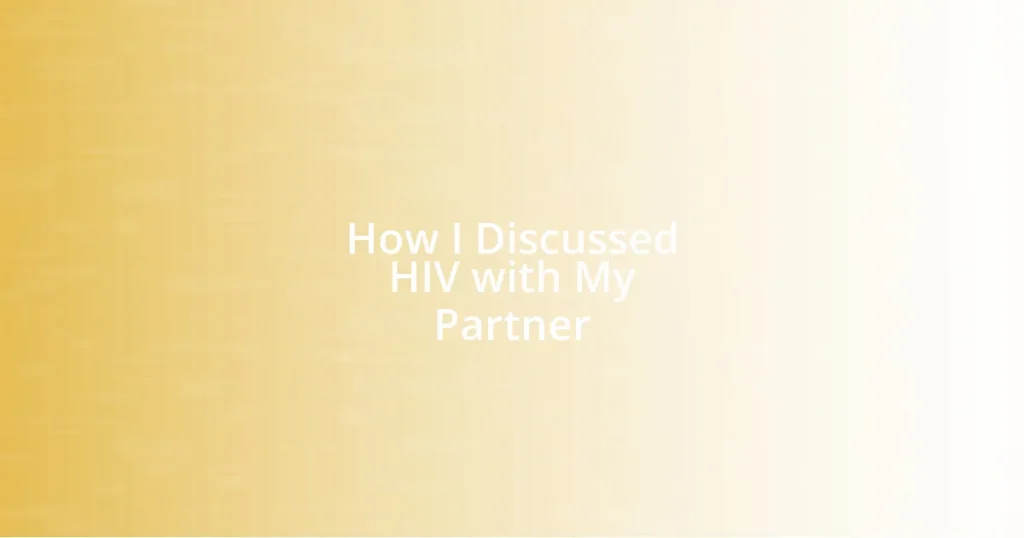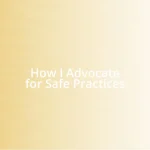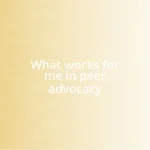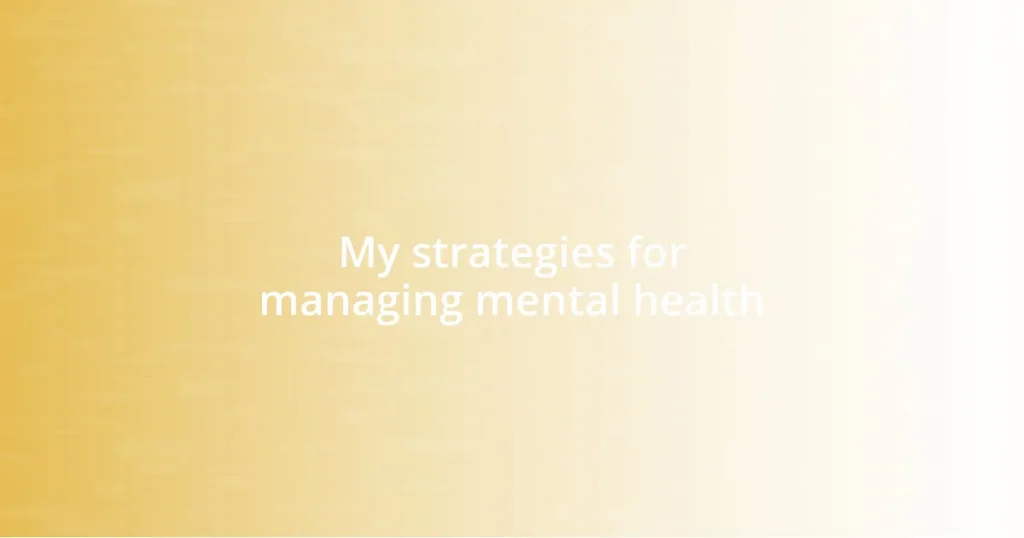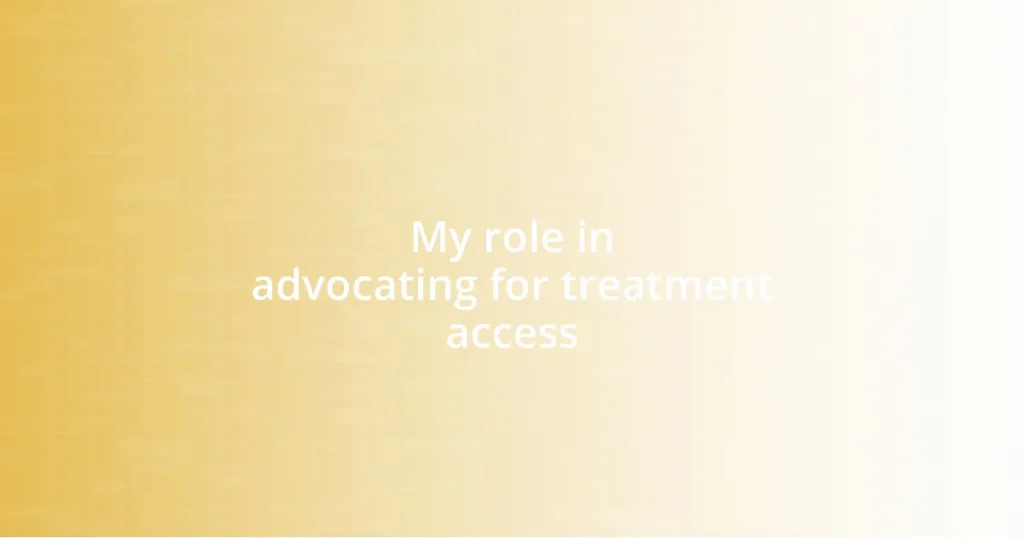Key takeaways:
- Understanding HIV’s impact is crucial for fostering empathy and support in relationships.
- Preparation is key: educating oneself, choosing the right time, and creating a safe space can facilitate meaningful conversations about HIV.
- Address emotional responses and encourage open dialogue to strengthen the relationship through vulnerability.
- Follow-up discussions are essential for maintaining trust and addressing lingering feelings after the initial conversation.
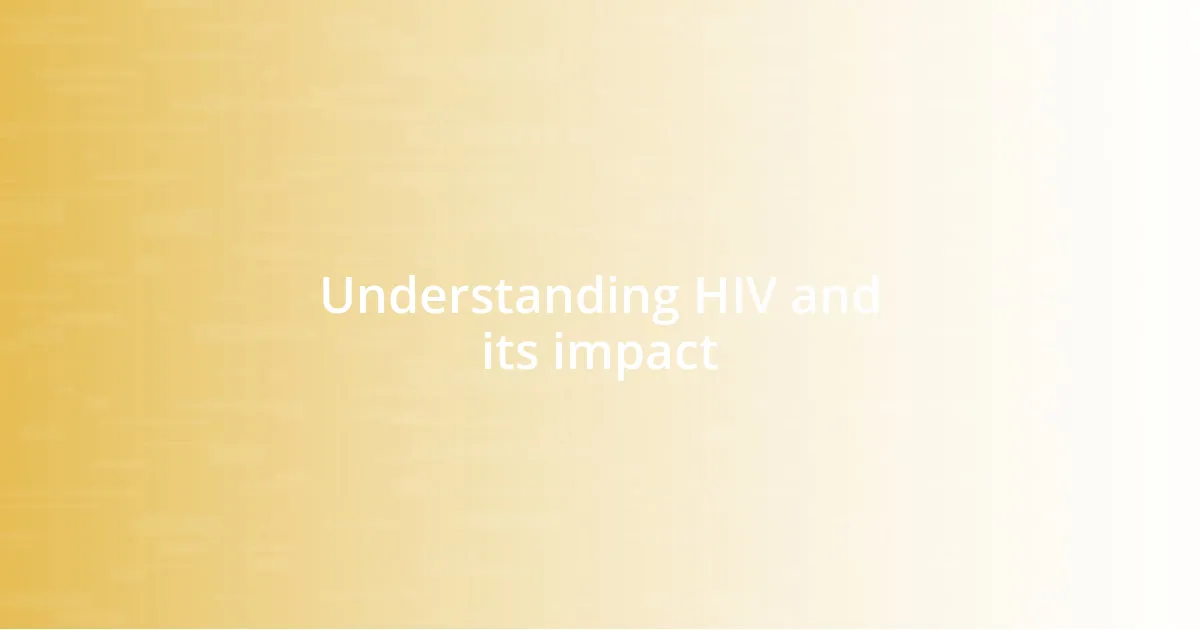
Understanding HIV and its impact
HIV, or Human Immunodeficiency Virus, fundamentally attacks the immune system, leaving a person vulnerable to various infections and diseases. I remember feeling a wave of concern when I first learned about how this virus operates, questioning how it could impact not just my partner’s health but our entire relationship. It really made me realize that understanding it was key to fostering empathy and support.
As I dove deeper into research, I discovered that the stigma around HIV can be just as damaging as the virus itself. I felt an unexpected mix of anger and sadness when I saw how people living with HIV are often treated. This prompted me to reflect: How do we break down these misconceptions and support one another in our journeys?
The emotional toll of an HIV diagnosis can be overwhelming, not just for the individual but for their loved ones too. When I talked with friends who had faced this challenge, I found that many felt isolated and scared. How can we create a safe space for open discussions about these feelings? My heart aches for anyone going through this; it reinforced my belief that communication and understanding are crucial in navigating such a significant life change.
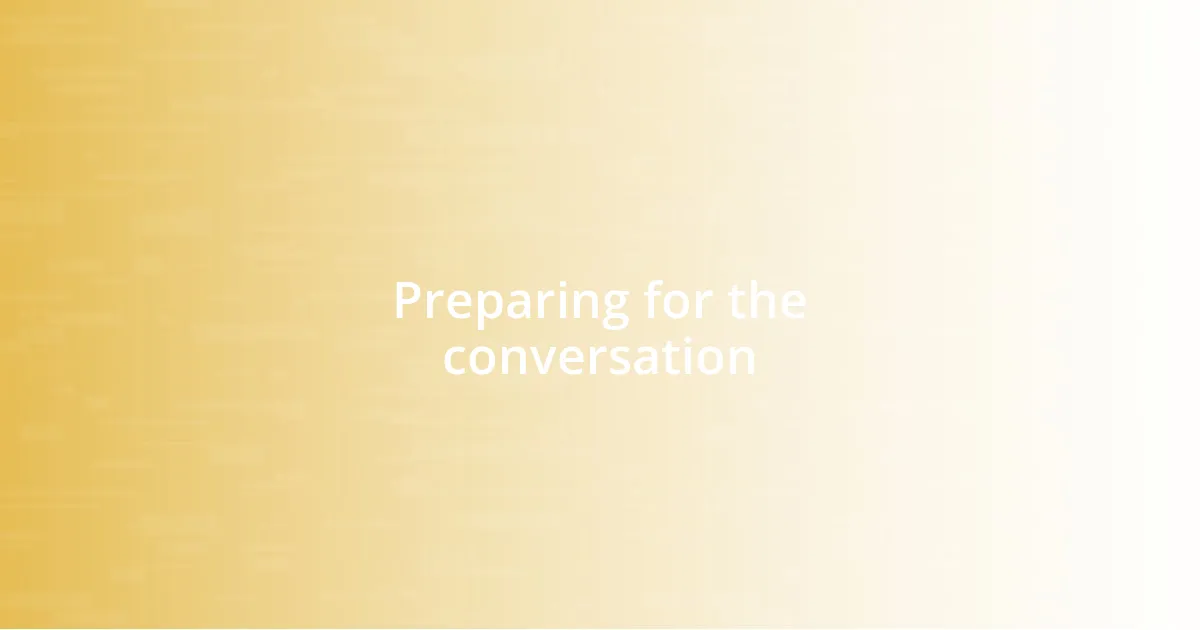
Preparing for the conversation
Preparing for the conversation is a crucial step that deserves thoughtful consideration. I remember pacing in my living room, rehearsing various scenarios in my head about how my partner might react. I knew I had to approach the topic delicately, not just to convey information, but to ensure that they felt safe and supported during this potentially distressing discussion. It felt vital to gather my thoughts and create an environment conducive to heartfelt dialogue.
Here’s how I prepared myself for that conversation:
- Educate Yourself: I read up on the latest facts about HIV to answer any questions and dispel myths.
- Choose the Right Time: Timing is everything. I waited until we could have some uninterrupted time together.
- Practice Active Listening: I reminded myself to listen without interruption to understand their feelings fully.
- Anticipate Reactions: I thought about potential responses my partner might have and prepared myself emotionally.
- Create a Safe Space: I set the mood at home by lighting some candles and playing soft music to calm both of our nerves.
- Express My Feelings: Before sharing my status, I planned to express how much I valued our relationship and wanted to be honest with them.
Engaging in this kind of preparation not only eased my anxiety but also gave me confidence that I could truly be there for my partner when the conversation began.
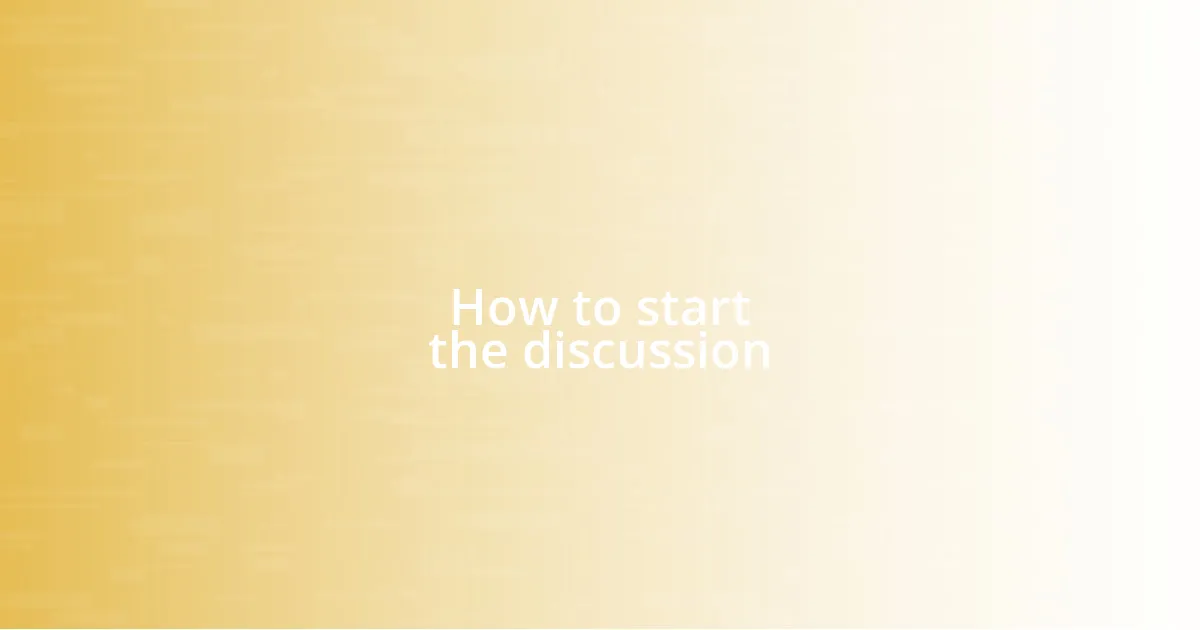
How to start the discussion
Starting a vulnerable conversation about HIV with your partner can feel daunting, but it’s essential. I found that the best way to approach this was to select a peaceful environment that felt safe for both of us. For me, this meant choosing a quiet evening when we could curl up on the couch with no distractions. There’s something about the comfort of home that makes heavy topics a bit easier to broach.
When the moment felt right, I opened the door by expressing how much I cherished our relationship. I shared my feelings honestly, mentioning that I had something important to discuss that would require trust and openness. I remember the deep breath I took; I could feel the tension in the air, but also the warmth of knowing we were in this together. It reminded me that vulnerability often leads to a stronger connection.
I also learned that asking open-ended questions can be a powerful catalyst for the conversation. I prompted my partner with thoughts like, “How do you feel about discussing health in our relationship?” This approach not only eased my anxiety but encouraged them to share their concerns and feelings. It transformed what could have been a one-sided conversation into a meaningful exchange.
| Approach | Description |
|---|---|
| Choose a Safe Space | Select a calm and comfortable environment to ease into the conversation. |
| Express Your Feelings | Share the importance of your relationship and your need for honesty. |
| Ask Open-Ended Questions | Encourage dialogue by prompting thoughts and feelings related to health and trust. |
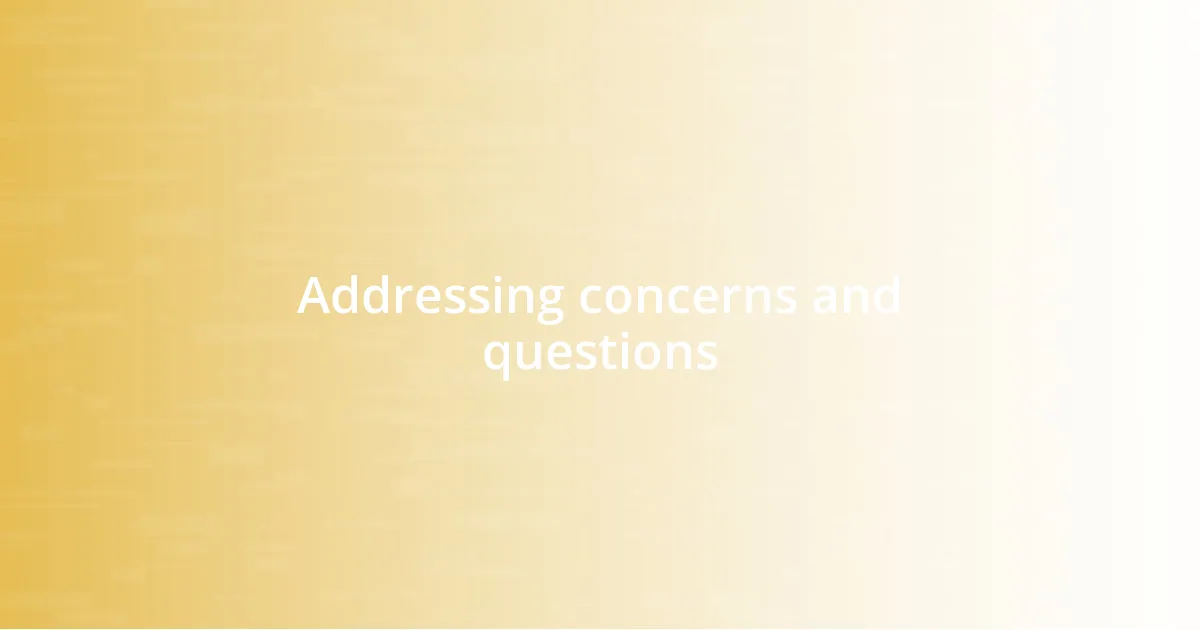
Addressing concerns and questions
Addressing concerns and questions during an intimate discussion about HIV can be one of the most challenging aspects. I recall my partner’s initial reaction—a mix of confusion and worry. Instead of brushing past these emotions, I made a conscious choice to invite every question they had. I assured them that it was okay to express fears or uncertainties, no matter how difficult. This openness allowed us both to unpack layers of anxiety surrounding the topic.
As the conversation unfolded, I noticed my partner grappling with the potential impacts on our relationship. I remembered feeling a swell of emotion when they asked, “Does this change how you see us?” That moment hit me hard because it reflected the vulnerability we were both experiencing. I took my time to explain that my feelings for them remained unchanged; it was our bond that I valued most. Sharing that emotional connection made it easier for my partner to feel reassured rather than isolated.
In asking questions, I realized the importance of framing them compassionately. I often posed queries like, “What worries you the most?” This not only opened the floodgates for a deeper discussion but also signaled to my partner that their feelings were valid. By fostering this kind of dialogue, we could address both facts and emotions, making our conversation about HIV a pathway to intimacy rather than a barrier. It was in these moments of vulnerability that I truly felt our relationship deepen.
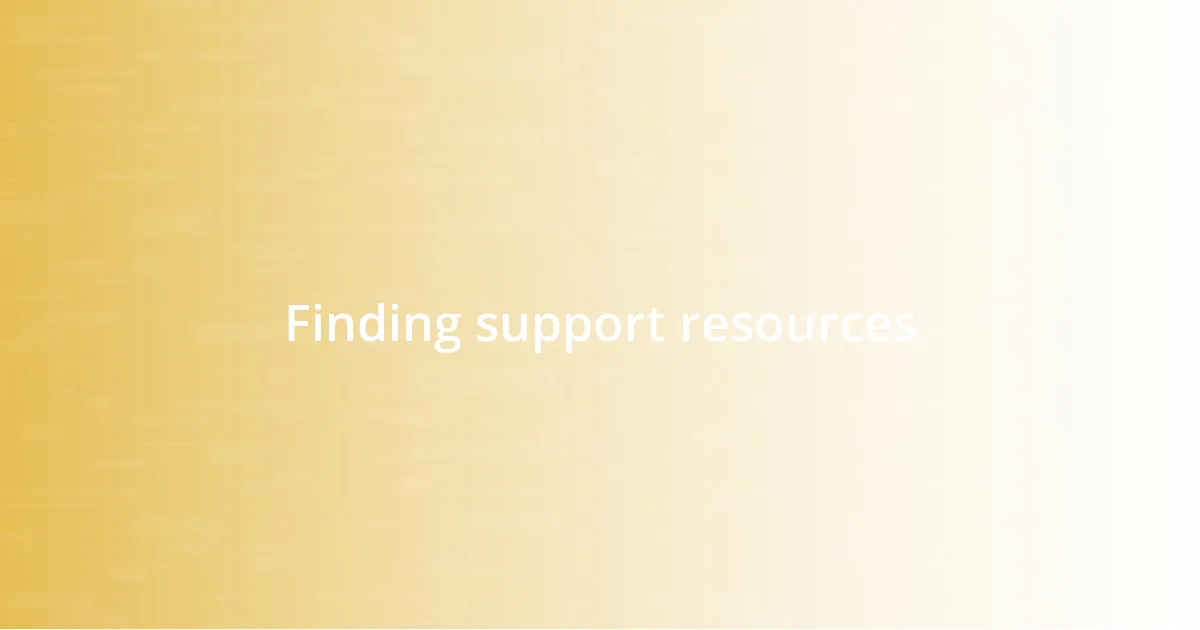
Finding support resources
Finding support resources for discussing HIV with a partner was a crucial step in my journey. I vividly remember diving into the internet to uncover local support groups and online forums, such as the CDC’s website and the AIDS Healthcare Foundation. Through these platforms, I found not just information but a sense of community—a network of people navigating similar conversations. I was amazed at how sharing experiences with others who understood made me feel less alone.
I also sought out educational materials to help both of us grasp the facts surrounding HIV, its transmission, and treatment options. One supportive resource was a local clinic that offered free counseling services. I distinctly recall feeling a sense of relief after speaking with a counselor, who provided me with both facts and emotional tools that I could share with my partner. Have you ever felt overwhelmed by the lack of information? I certainly did, and finding qualified resources made it easier to manage those fears.
In the end, finding support wasn’t just about gathering information; it was about creating a solid foundation for our relationship. Connecting with organizations that prioritized education and support helped me to feel empowered. The more I learned, the more confident I became in discussing my feelings and experiences with my partner. It reinforced the idea that seeking help is a sign of strength. After all, isn’t it comforting to know you’re not alone on this journey?
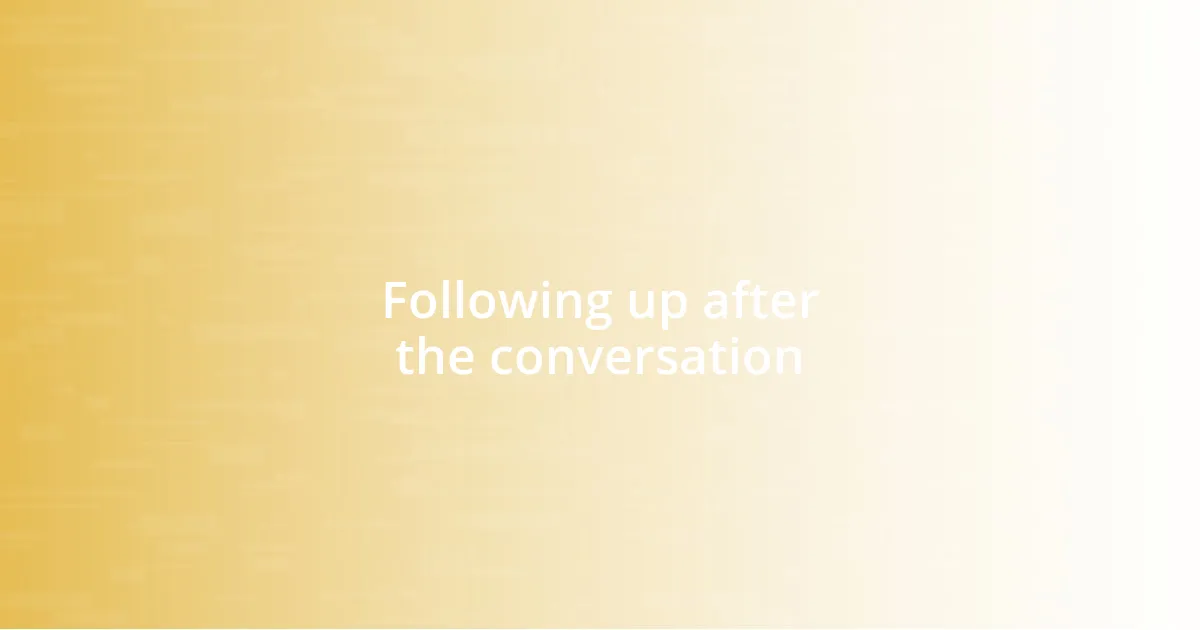
Following up after the conversation
Following up after our initial conversation about HIV was essential for maintaining trust and connection. I remember sitting down with my partner again, a few days later, to check in on how they were feeling about our discussion. It was like peeling back another layer of understanding; I wanted to know if any lingering thoughts or fears had surfaced. Trust me, it’s worth revisiting these conversations to demonstrate that their feelings matter, even after the first emotional whirlwind.
In those follow-up talks, I encouraged my partner to share openly, reminding them it was okay to revisit any topic. One evening, as we sipped tea on the couch, they finally admitted feeling a bit overwhelmed by the health implications. I felt a pang of empathy; I too had grappled with those fears. So, I patiently listened, allowing silence to fill the gaps, which helped us uncover more layers of anxiety we hadn’t yet addressed. This openness reinforced that these dialogues aren’t one-time events but ongoing explorations of our feelings and decision-making.
I can’t stress enough how crucial it is to keep the dialogue flowing. Sometimes, I would send a quick text just to check in, asking them how they felt since we last talked. It wasn’t about probing for details but rather showing support and care. Little gestures like this can hang in the air like a warm embrace, letting them know that it’s okay to seek reassurance whenever needed. Have you ever felt the weight of unsaid words? I have, and I learned that following up can lighten that load, making both partners feel truly seen and heard.

